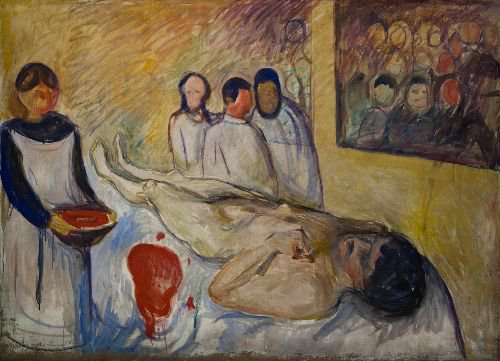What does it mean to be a nurse?
A person is perhaps no more vulnerable than at a time of illness. The individual is physically limited in some way, may be confused, may be scared, and these feelings can extend to the person’s support system if any exists. In the midst of this uncertainty, there must be someone to serve as an anchor. As the personnel who spends the most time at the bedside, who interfaces most with the patient, who advocates for the patient and caregivers, it is the nurse who fills this role. In essence, the nurse takes the complicated science of medicine and makes it human.
A number of people of written about and formulated nursing philosophies. Ultimately, though, a person’s outlook will be shaped by experience, and while some parts of a philosophy are fixed, others are fluid. Core values, such as approaching each patient as a person and not an illness, as offering a service to someone in a time of need, of following through on requests, do not change over time. But another key to both survival and success in nursing is an understanding that the profession, and therefore the practitioner, must be open to change. The way to do this is to approach the profession, and the bedside, with humility. Nobody has all of the answers, all of the supplies and skills, and nobody has gotten to where they are without any help whatsoever from anyone whatsoever. Be willing to listen to and constantly learn from colleagues, from supervisors, and from patients and families, rather than place all trust in oneself. Another means of expressing humility is through continuing education. There are common everyday items that are indispensable today yet did not exist a few decades ago, as there are now treatments that for years were only dreamed of. Imagine what awaits in the years to come. So one cannot approach nursing as another every day job. Rather, the nurse, whether one fresh out of school or one with 30 years experience, has to remain the child in the candy store- wanting it all but not knowing where to start. This will keep the profession fresh, and keep the nurse in a position to grow rather than stagnate.
There have been several instances that have demonstrated this concept to me. Without giving too much information- even here the long arm and eye of HIPPA loom- I recall in my first semester a patient who did not want me to care for her, but in the middle of our time there, after several failed attempts to assess her and discuss her care, I poked my head in and casually asked if she wanted any change of gown or water. After bringing her a new pair of socks, her entire demeanor changed, and we spent the rest of the shift talking, and suddenly she was asking me to conduct all my assessments and confiding personal information to me. In my psych clinical, there was a difficult patient in the hallway, and staff was considering calling a code. The patient suddenly came running up to me, of all people, and said he wanted to talk to me. My professor was cautioning me not to, but I figured I might as well give it a go. After a few minutes with him, it turns out all he wanted was a blanket. My clinical professor complimented me on managing a challenging situation, but really all I did was listen, something apparently nobody else was. On a med-surg unit, one of my most memorable, and most successful days came caring for a patient with a gastric tube who mentioned he had trouble breathing from time to time. I explained the purpose of his tubes and taught him to use an incentive spirometer. The point, here, is that my greatest lesson in nursing school is that it is not the big, complex procedures, but rather the simplest and most basic interventions that prove the most effective.



